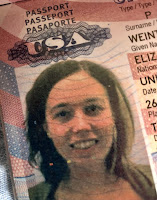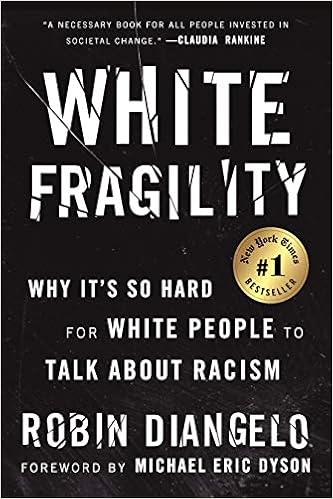The Big One
As my high school graduation approached in the spring of 1999, my parents told me that they wanted to get me a special gift to remember the event and asked me if there was anything in particular that I wanted. I thought about it awhile and finally decided that there was only one thing that I really wanted: The Complete Works of William Shakespeare. I think I even requested the specific edition that I later received - The Yale Shakespeare: The Complete Works.
Although I have been tempted as I am a prolific highlighter and margin-note taker, I have kept the pages of this magnificent book exactly as they were printed. I took every Shakespeare course offered at the University of Tennessee, but I always bought trade paperbacks for my courses to avoid marking up my Yale (and carrying it to class). I kept those too, of course. As there appears to be a Shakespearean gene in my family, I also inherited a full selection of paperback Shakespeares after my paternal grandfather passed away. And then when eBay was first starting out (before they had minimums on the auctions), I paid around $25 (including shipping) for a one-hundred-year-old set of 12 hardcover volumes with beautiful full-color illustrations. Unfortunately, they were desperately in need of re-covering when I bought them, and they are still in the same shape. Re-covering antique books is not cheap, so it’s a “down the road” project.
So, yeah, I have a lot of Shakespeare books, but the Yale is by far my favorite. I love the weight of it, and the silky smooth pages. I like the type, the spacing, the editorial notations. It is a beautiful book, and one of my favorite things.
The Bible
After my friend Christian Soronen died, her mother gave me one of Christian’s bibles. It has a beautiful, black, leather-bound cover, with Christian’s name written on the inscription page. Like all of Christian’s books, it looks new (she never wrote in books and handled them carefully). There are several reasons why this bible is important to me, but they are private. I also do not feel comfortable sharing a photo of it at this time, but I had to include it in the list.
The Passports
Passports are like journals, records of where life has taken you. I love that they are “official”, genuine and authentic records. I love what they symbolize: your freedom to pass through the world. When I had to renew my passport a few years ago, I almost wept because I had to send the old one back. (Thankfully, they actually return them to you, voided with a hole stabbed through the center, but otherwise intact.)
I love that the gold-embossed lettering on my dark blue passport says “United States of America,” because I am very proud of where I came from, and always cognizant of what I represent when I visit other cultures.
 Note to Self: Wash your hair before taking your next passport selfie.
Note to Self: Wash your hair before taking your next passport selfie.
I don’t think my reasons for loving my passport requires further explanation than that.
The Journals
I have been a prolific keeper of journals since I was old enough to write. I have a navy blue diary with a broken brass lock that I started filling with short sentences scribbled in giant letters when I was four or five years old. Over the past thirty-five years, I have filled dozens and dozens of spiral notebooks, computer hard drives, and colorful bound journals with thoughts, experiences, travels, and memories. When I need to write, I will write on anything with anything, so many of my journals are disorganized and cluttered, stuffed with index cards and post-it notes. I have journals that I started in 2002 and completed last year. The only consistency is that I always put the date in the top right corner of the page (one day, I really hope I take the time to put everything in order, but it’s pretty unlikely that will ever happen). At any given time, the bottom drawer of my nightstand is filled with 8-12 journals with at least a few pages remaining to be filled.
When I was younger - especially during my teenage years - I used to write at the beginning of the journal that, if something happened to me, the journal was to be given unread to a certain person (usually one of my dear friends Christine, Anne, or Nancy) who would then decide what to do with it. Obviously, at the time, my main concern was my parents reading something embarrassing or angry or mean. (I don’t really include those warnings anymore. My parents know that I keep journals and I do not think they have any desire to read them.)
I do not know why I keep journals. I know why I write - it is how I process my thoughts, and I thoroughly enjoy writing. It would be impossible for me to stop writing. But why do I keep everything I write? It’s not like they are keeping a historical record of anything. Typically, I write more about my thoughts and ideas than events. I have no desire to publish them or even let another soul read them in my lifetime. The only conclusion I have come to is that they represent my survival. It is no secret that I have dealt with some pretty significant challenges in my life (as well as rather insignificant challenges that seemed more serious at the time). I think that I preserve this record of my life, in part, to remind myself of what I have overcome. And then there are things that I simply want to remember.
My journals are also significant because of what they exclude. I write a good deal about sadness, depression, and difficulties. For me, writing is part of the process of overcoming those things. There have been some periods of my life, however, where I did not write with any sort of regularity. These voids represent very dark times in my life; the times that I did not feel compelled to write are the times that I was not myself. I wrote very little during my marriage.
Besides my dogs (which really should not be classified as “possessions,” these journals are my most important possessions. In a fire, they would be the first things I grabbed (again, after the dogs). On a deserted island, just give me something to write with.
What Does It All Mean?
There are many other things that matter to me, from pieces of furniture and articles of clothing to unique items I’ve collected over the course of my travels or inherited from a beloved relative. There is an original, black and white, wallet-size photograph of my mother in her late teens/early twenties that I absolutely adore. There is music of course, like my six-disc Johnny Cash collection, or the set of previously unreleased Nirvana recordings that I could not stop listening to for months. There are tickets to museums, movies and music festivals, certificates, diplomas, licenses, awards, personal correspondence, and the old key to my grandmother’s house, which was my favorite place on earth. The little ring I wear every day that my brother bought for me when I was visiting him in California. And there is art. Lots and lots of art, from framed originals to prints and photographs.
I attach more meaning to things than I realized, and I think that may be why I have hesitated to let go of a lot of the “stuff” that I have accumulated over the years. So how do I detach enough from the things to declutter my life without bringing in Marie Kondo? I think, perhaps, the first step is to stop hanging on to things that I think “might be” significant to me one day. Either an item is significant or it is not. As Kondo says, if an item is significant, find a place of honor for it in your home. Otherwise, she argues, what is the point of keeping it? I agree with her, for the most part, but there are some things that matter to us simply because they exist, and not because we want to display them, show them to our friends, or write a blog post about them.
I think it’s okay to keep those things too. Just get rid of the rest.








